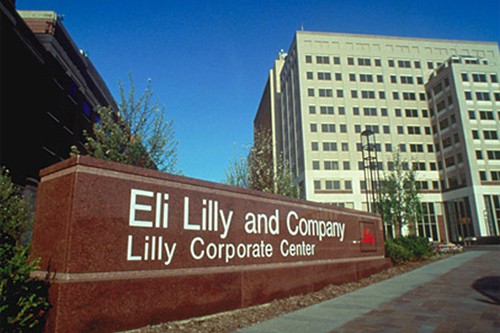
Eli Lilly’s CDK 4/6 inhibitor abemaciclib failed to hit interim objectives in an ongoing phase III breast cancer trial, but the company has decided to push on with the project.
An interim analysis of the MONARCH 2 results carried out by the trial’s data monitoring committee revealed that the drug appeared to be safe but failed to meet efficacy targets, with Lilly saying it will continue the trial to its conclusion in the first half of 2017.
Abemaciclib was being tested alongside AstraZeneca’s hormonal therapy Faslodex (fulvestrant) as a first-line treatment for women with hormone-receptor-positive (HR+), human epidermal growth factor receptor 2-negative (HER2-) locally advanced or metastatic breast cancer.
Richard Gaynor, senior vice president of product development and medical affairs for Lilly’s oncology, said: “We remain optimistic that treatment with abemaciclib, in combination with fulvestrant could offer improved outcomes for patients.”
Despite the optimism, a setback in the MONARCH 2 trial would be a boost for Pfizer – whose Ibrance (palbociclib) is currently the only CDK 4/6 inhibitor on the market – as well as other companies developing drugs in this class such as Novartis with ribociclib.
Ibrance has seen sales accelerate since its launch last year – with sales of $942m in the first half of the year already surging ahead of the $723m it made in 2015.
Clinicians have predicted that Ibrance could change the way HR+/HER2- breast cancer is treated, with analysts predicting that the CDK 4/6 inhibitor class as a whole could eventually hit $10bn in peak annual sales.
Lilly said it still hopes to file for regulatory approval of abemaciclib based on the results of the MONARCH 1 trial, which were reported at the American Society of Clinical Oncology (ASCO) meeting earlier this year.
This study looked at the value of abemaciclib as a single agent in women with refractory metastatic breast cancer, whose disease had progressed following multiple prior treatments, including chemotherapy, and revealed a significant increase in progression-free survival.
Lilly had previously indicated it would submit MONARCH 1 data to the FDA shortly after the interim MONARCH 2 readout, but said it would now “await further data and continue to work with the FDA to inform its submission plan for single-agent abemaciclib”.




